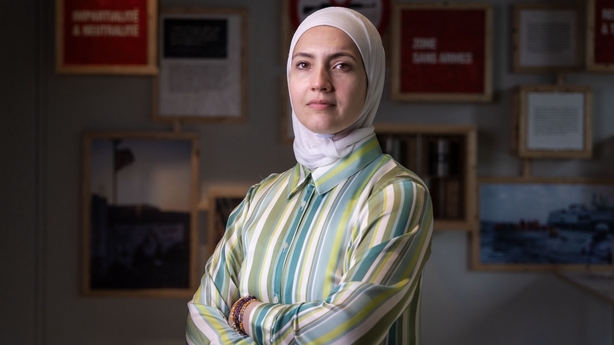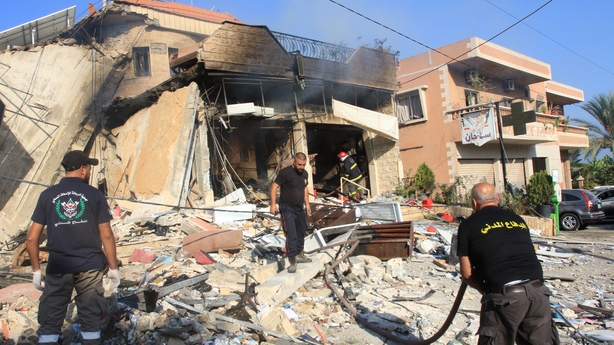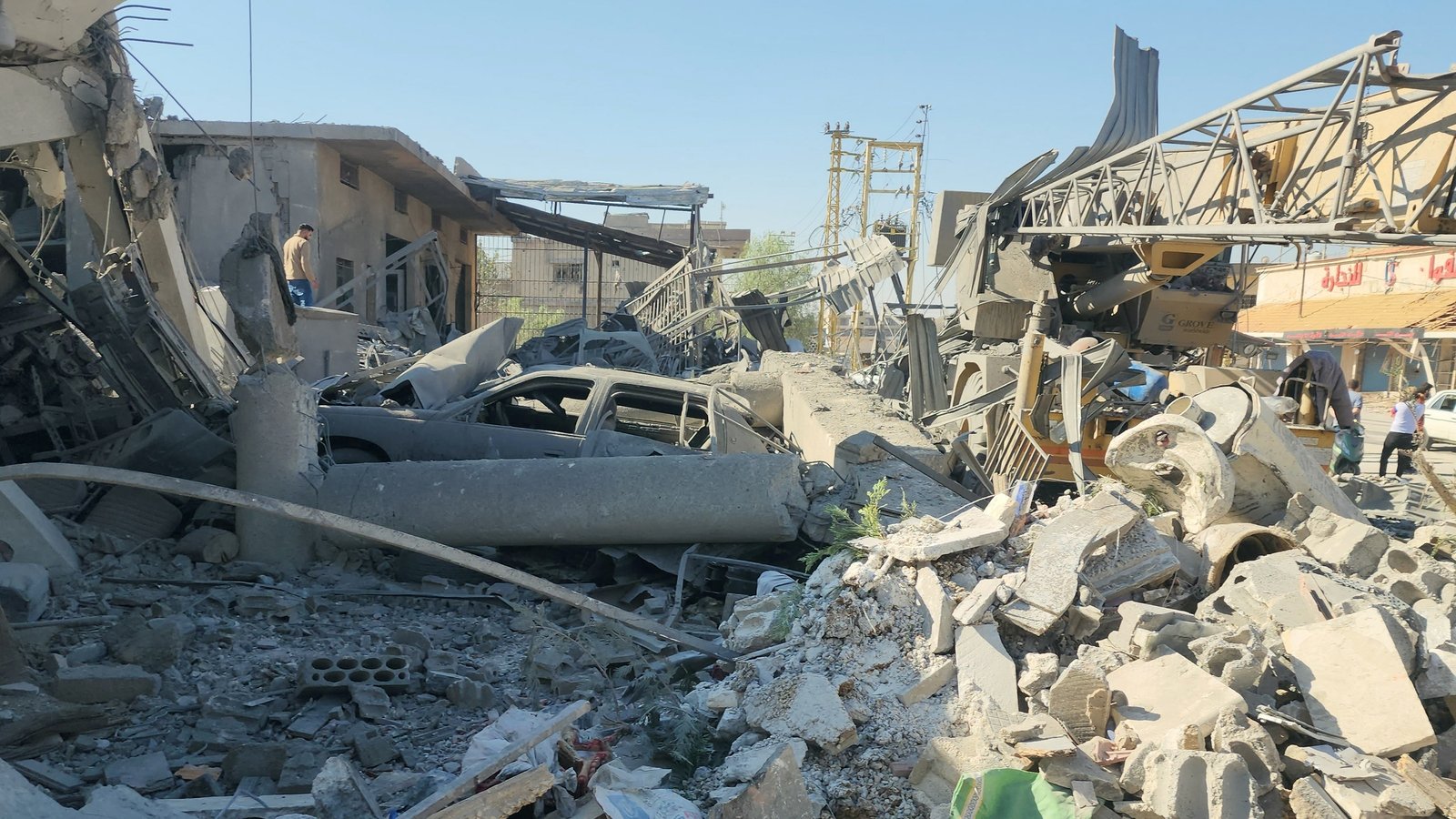A leading humanitarian coordinator in Beirut has warned that the possible ground offensive by Israeli troops into Lebanon would deliver a further devastating blow to the already traumatised displaced people there.
More than 90,000 people have been displaced in Lebanon since Monday, the UN said.
Dr Luna Hammad, Médecins Sans Frontières (MSF) Medical Coordinator in Lebanon, told RTÉ’s Morning Ireland that Beirut is already struggling to cope with an influx of displaced people.
She also responded to an Israeli army chief who said its latest strikes on Lebanon are to prepare for the “possible entry” of troops.
Dr Hammad said any such entry would have a devastating impact and further displace people, putting pressure on cities like Beirut and its infrastructure.
“The humanitarian situation could significantly and rapidly deteriorate,” Dr Hammad added.
She said an Israeli incursion into Lebanon “would first have a huge impact on the civilian population in the affected areas” and mean an “even bigger high influx of displacement”.
This in turn “would drastically have a burden and overwhelm the resources on the host communities”, particularly in cities like Beirut which are already under pressure with people arriving there.
“We have been receiving a high influx of internal displaced people,” said Dr Hammad, speaking from Beirut.
She added that highly vulnerable older people, women and children are arriving in Beirut and because they have fled their homes, they have little money or belongings.
“They don’t have the means to purchase the most basic needs of their children and themselves. Water is a huge issue. The hygiene would be a huge issue.
“There is no proper infrastructure to accommodate families for showers, for cooking. They are being sheltered in schools and institutions.
“A lot of people are still on their way, so the traffic from the South to Beirut in indescribable. Some people have been for days on their way to Beirut and therefore they’re exhausted, stopping their cars and just laying down under bridges until they take their rest.”

MSF teams are providing psychological supports for displaced people.
Dr Hammad said of the people getting trauma support and counselling are “shocked”.
“They haven’t slept for days. They are not worried about themselves, but they’re very much worried about their young kids and younger children. It is very difficult,” she said.
MSF is also coordinating a response with partner hospitals and providing trauma kits to support health facilities that are receiving trauma patients and wounded ones.
“They have been operating 24/7 for the past week and they are overwhelmed with the number of patients they are receiving and with the high consumption of the medical supplies,” said Dr Hammad.
The MSF coordinator witnessed children injured in hospital who “were in kindergarten” one minute but “now have lost limbs” and serious abdominal injuries.
Hospitals MSF is supporting are failing to keep up with medical demands as trauma patients arrive in great numbers, she said.
She added that traumas treated at hospitals “are caused by either air strikes and bombing and it could affect either the head, the limbs, the abdomen, the face”.
The resources available to treat these injuries, she said, are not enough to meet the injuries.

What she witnessed was “very unpleasant”.
“It’s devastating. It’s very unpleasant. It’s civilians that were living their daily lives normally and suddenly they have a huge injury … their children that were in the kindergarten, for example … suddenly lost a limb or have a huge trauma in their abdomen,” she said.
She added that what is happening in Lebanon is “worse than the 2006 war”.
“I mean the number of displacements, the situation of and condition of these displaced people is way worse than what has happened in 2006. It’s shocking,” she added.
She said MSF is calling on “humanitarian, medical and non-medical NGOs to advocate for a ceasefire and to support IDPs and wounded and vulnerable people.”
Already, MSF mobile medical units are providing primary and mental healthcare at shelters for those in need.
Its teams are also distributing essential items like mattresses and hygiene kits, running mental health helplines and offering psychological support to displaced people.
Yesterday, Israel’s military chief Lt Gen Herzi Halevi told troops extensive air strikes in Lebanon targeting the armed group Hezbollah could pave the way for them to “enter enemy territory”.

